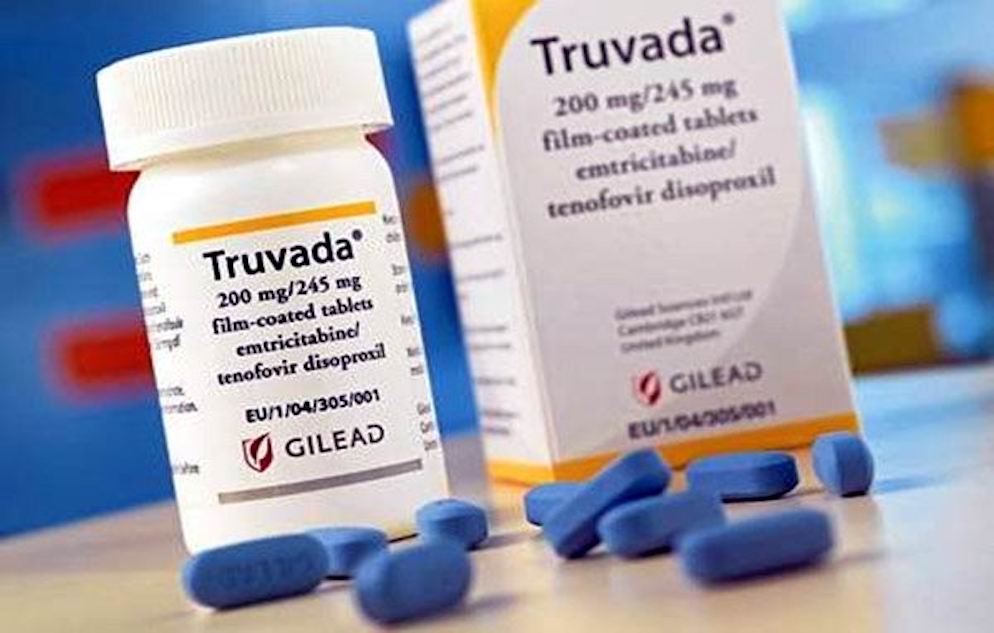WARNING! Commonly Used HIV Drug Truvada Induces A Type I/III Interferon-Associated Signature And Inflammation Throughout The Gut
HIV Drugs: According to researchers from the University of Washington-Seattle, the commonly used HIV drug that is to treat those infected and also individuals using it as a prophylaxis or in PrEP protocols can induce a type I/III interferon-associated signature and inflammation throughout the gut.

It should be noted that long term inflammation of any kind can lead to a variety of chronic conditions.
The study findings were published in the journal: Cell Reports Medicine
https://www.cell.com/cell-reports-medicine/fulltext/S2666-3791(20)30122-1?_returnURL=https%3A%2F%2Flinkinghub.elsevier.com%2Fretrieve%2Fpii%2FS2666379120301221%3Fshowall%3Dtrue#%20
From the study it was found that the drug Truvada currently used to keep the HIV virus in check can also cause immune-system changes that might make humans better able to resist viral infections but at the same time might also cause harmful inflammation.
The research led by Dr Florian Hladik and Dr Sean Hughes from the University of Washington examined the effects of a commonly prescribed drug cocktail of drugs on the body.
Typcially sold under the brand name Truvada, the drug combo tenofovir disoproxil fumarate and emtricitabine (TDF/FTC) are prescribed in tandem for most HIV/AIDS patients to suppress viral loads to undetectable levels.
Initially approved for use in the United States 20 years ago, the drugs have enabled people to live for decades beyond their initial diagnosis.
The drug is now also used as a prophylaxis for people who do not have HIV but might be at risk due to behavioral patterns and lifestyles or occupations (sex workers) and is often recommended in the PrEP protocols.
However, Hladik said, "The HIV virus itself never goes away."
The researchers studied the effect of TDF/FTC in patients who were using the drug to prevent HIV, and in the absence of active HIV infection.
The study team observed patients over the past five years and also included data from two earlier studies.
The team wanted to know how the drugs themselves affect the immune system.
Dr Hughes told Thailand Medical News, “The study team found that the drugs stimulated type I / III interferon responses, a part of the immune system that is crucial for the body's ability to fight off viruses. This only happened in the gut.”
However the study team cautioned that the clinical consequences of the findings are uncertain and merit further study.
Dr Hladik added,"Increased type I / III interferons could be a good thing and actually make the drugs more effective at suppressing viral infections, including HIV. However, they could also cause inflammation, which could contribute to conditions such as cardiovascular disease that are common in people living with HIV. Furthermore long term inflammation in the gut can give rise to a variety of chronic conditions.”
He further added, "These effects
might even make it harder to find a cure for HIV if they make cells silently infected with HIV (called latent cells) more likely to survive or even cause them to proliferate."
Dr Hladik and Dr Hughes also want to look for those same effects in people infected with HIV.
The good news is that there are new drug regimens that have just become available that highly suppress the HIV virus in patients and don't contain TDF/FTC or other drugs of that class.
The study team hopes to conduct a trial comparing immunity in HIV-infected individuals using TDF/FTC to others using these newer regimens to determine whether their findings are true in HIV-infected individuals.
The study team hypothesizes that the newer regimens will avoid chronic immune activation and decreases the number of latent cells.
Dr Hladik further commented, "The most important next step is to repeat our studies in HIV-infected individuals, and to find out if replacing drugs such as TDF/FTC with newer regimens has clinically relevant effects on reducing chronic inflammation and persistence of latent HIV.”
As a cautionary note, patients currently on Truvada should not attempt to stop their treatment protocols but rather consult their doctors and also go for health screenings of their heart and gut pending suggestions from their physicians.
For more on
HIV Drugs, keep on logging to Thailand Medical News.
